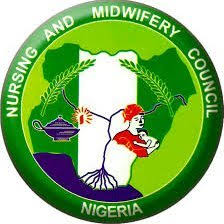The Federal Government has expressed readiness to prevent and control oral health diseases through the revised National Oral Health Policy and the Noma Policy and Strategic Plan.
The Dentistry division of the Federal Ministry of Health and Social Welfare plans to integrate Noma activities into the existing structures with the Neglected Tropical Diseases (NTDs) programme, especially in areas of active case search, psychosocial support, peer group support programme, livelihood support and anti-stigma campaign.
Also, the ministry has developed measures to address the inadequate dental workforce in the rural communities, through task sharing and upskilling the primary healthcare centres to provide basic oral health care.
Minister of State for Health and Social Welfare, Dr Iziaq Adekunle Salako, who disclosed this at the commemoration of 2024 National Oral Day/Noma said that the ministry, in collaboration with stakeholders, is making efforts to address Noma disease, which is a devastating and disfiguring condition prevalent in the country’s rural areas.
Salako noted that Cancrum Oris progresses from Acute Ulcerative Necrotising Gingivitis (AUNG) commonly called Noma, a non-contagious disease of poverty, poor oral hygiene and acute malnutrition is particularly of great concern.
The disease, which disproportionately affects children aged two to six years can rapidly eat away the soft and hard tissues of the face, often leaving the face of such individuals with a poor cosmetic outcome and if left untreated resulting in death.
He observed that the World Health Organisation (WHO) in 1999 declared Noma a public health problem. In 1998, Noma was identified as one of the priorities of the Regional Strategy for Oral Health in the WHO Africa Region, while the WHO Africa Regional Office (AFRO), three years later established the Regional Noma Control Programme (RNCP) to bridge the knowledge gap about Noma and improve on early detection, diagnosis and management of cases at the primary care level.
The minister said a treatment centre has been established within the National Hospital Complex and other existing centres in Sokoto State, adding that Nigeria is poised to eradicate this preventable and treatable disease.
Salako said: “Nigeria played a leading role in the WHO’s listing of Noma among the NTDs. Working with 33 other countries across the globe and with the dossier of evidence presented on the floor of the United Nations World Health Assembly in May 2022, NOMA was declared on December 15, 2023, by the WHO as a neglected tropical disease thus bringing more concerted attention of the global health authorities, philanthropies and funding partners to the debilitating disease.”
The minister observed that the government is working with stakeholders to strengthen workforce capabilities at the grassroots level by training healthcare workers, traditional healers, and community mobilisation officers to ensure early detection, treatment, and referral of oral diseases and Noma cases.
Salako noted that the government’s commitment to ensure universal health coverage for all Nigerians offers a veritable springboard to ensure that we eradicate Noma and frontally tackle all oral diseases in our country.
He urged Nigerians to support the government’s efforts to improve the oral health of the citizens by observing basic oral health rules by twice daily brushing of the teeth, routine dental visits, avoiding cigarette smoking and eating a balanced diet among others.
Salako noted that the mouth is a mirror that reflects the overall health status and a key determinant of nutritional status and influencer of self-esteem. “A healthy smile is not just a reflection of our physical appearance, but also an indicator of our overall health.
The minister observed that when oral health is compromised, the general health suffers, affecting vital functions like chewing, swallowing, speaking, and sleeping.
He stated that oral health challenges often lead to pain and discomfort, impeding the ability to concentrate, and can lead to social isolation, absenteeism, lowering earning power and perpetuating poverty.
Oral diseases, such as dental caries, periodontal diseases, oral cancers, and Noma, are among the most common and preventable non-communicable diseases (NCDs) worldwide. They share modifiable risk factors with other leading NCDs, including tobacco use, harmful alcohol consumption, and unhealthy diets.
“The Technical Working Group (TWG), a multidisciplinary committee, made up of members of the academia, representatives of local and international NGOs and other critical stakeholders is working and innovating on how best to combat Noma in Nigeria.”
Also speaking, the Country Representative of Médecins Sans Frontières (MSF) in Nigeria, Dr Simba Tirima, urged the Federal Government to integrate Noma surveillance into Nigeria’s health systems, adding that early detection and timely treatment remain critical to saving lives.
He stressed the need to address the underlying drivers of noma poverty, malnutrition, and inadequate access to healthcare, saying, “We must strengthen collaboration between local communities, health professionals, policymakers, and international organisations to create sustainable solutions.”
Tirima expressed the commitment of the organisation to a future where no child suffers from Noma and no community is left behind.
Also, Permanent Secretary of the Federal Ministry of Health Daju Kachollom, said that the WHO recognised noma as a neglected tropical disease, and acknowledged the suffering endured by countless individuals, particularly in underserved communities.
She emphasised the importance of having a future where no child suffers from Noma and the need to work together to create a world where every individual has access to oral healthcare.
SOURCE: GUARDIAN NEWSPAPER




